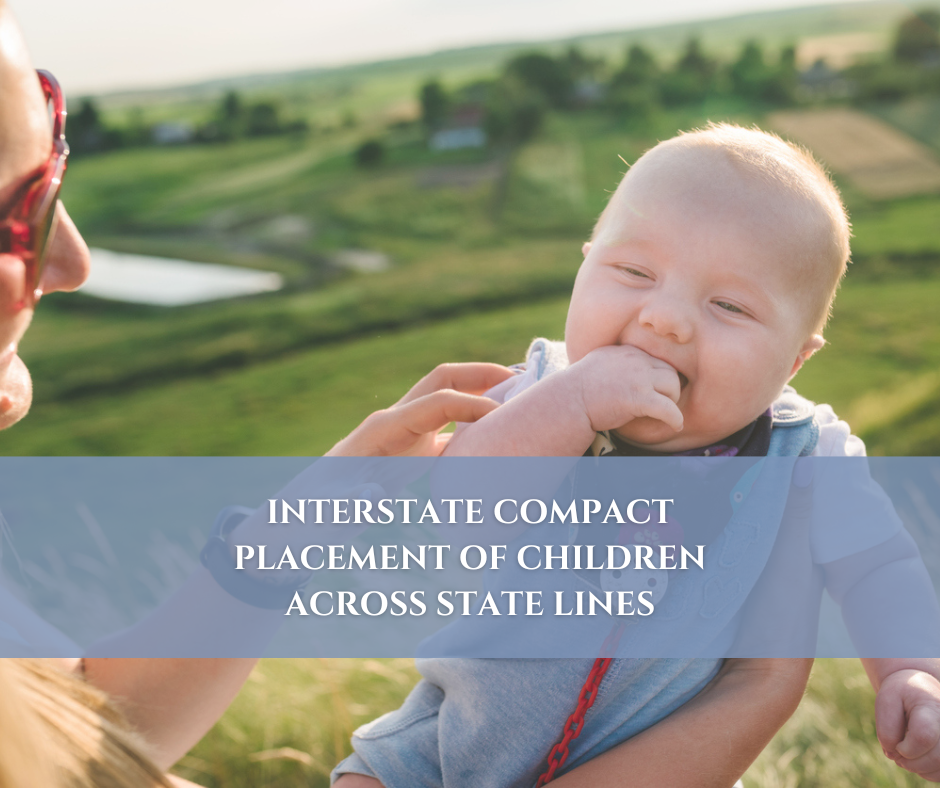Except in close relative placements, if you are adopting a child from another state, you must receive approval from the Interstate Compact Office in your state of residence and the child’s state of residence (or place of birth) before traveling home with the child. Failure to do so can result in sanctions and the denial of your adoption. It is so important to consult with an adoption attorney to discuss this important area of adoption law, so your adoption does not become an illegal one. Below, I have answered some commonly asked questions about the ICPC process.
What is the Interstate Compact for the Placement of Children (ICPC)?
The ICPC is a uniform law drafted in the 1950s, which today has been enacted in all 50 states, the District of Columbia, and the U.S. Virgin Islands. The ICPC contains ten articles which establish the procedures for interstate placements and assign responsibilities for all parties involved in an adoption. The ICPC applies only to children who are placed for adoption across state lines, but not to placements made by a parent, stepparent, grandparent, or other close adult relative with other close relatives.
How does the Interstate Compact work?
If an adoptive family is from state A (receiving state) and the baby is born in state B (sending state), ICPC applies. In this situation:
- The family travels to the sending state for the adoption.
- Before the adoptive family is allowed to leave the sending state, the adoption professional must submit extensive paperwork to the sending state’s ICPC office.
- After the sending state has approved the adoption, all the paperwork would then be forwarded to the receiving state’s ICPC office.
- Once the receiving state has approved the paperwork, the family is notified of the approval, and only then can they return home.
If ICPC is not followed, or the family leaves before ICPC approval, the adoption could be jeopardized, and the child may be ordered returned to the sending state.
ICPC Safeguards
The ICPC provides safeguards to all parties involved in the adoption, especially the child, by:
*Requires both a home study of the adoptive family and an evaluation of the interstate placement.
*Ensures the sending and receiving state’s laws and policies are followed before approving the interstate placement. (In Florida, that includes using an Adoption Entity),
*Assigns responsibility to the sending agency, thus guaranteeing the child’s legal and financial protection.
*Allows the receiving state the opportunity to consent to or deny the adoptive placement.
*Requires continual supervision and regular reports on each interstate placement.
*Ensures the sending agency does not lose legal jurisdiction of the child after moving to the receiving state.
Time needed to process ICPC.
ICPC cannot be submitted until the mother signs a consent for adoption. In addition, some of the items required for submission are not available until the day the baby is released from the hospital, including discharge paperwork and medical records.
Once the ICPC paperwork has been submitted, it takes an average of 7-10 business days to process. This is an average time frame and some ICPC offices can take longer, and many take less time. Only one parent must stay with the child during the wait. Foster care can be arranged if necessary.
We understand the adoptive family’s desire to return home and share their excitement and joy with family and friends as quickly as possible! We encourage you to use the time to bond with your newest family member during the ICPC process.
We will endeavor to minimize your wait and have vast experience in this space. Please reach out to one of our board-certified adoption attorneys if you have additional questions about the ICPC process. You call alway email us at [email protected]. or call us via 800-874-4916.

